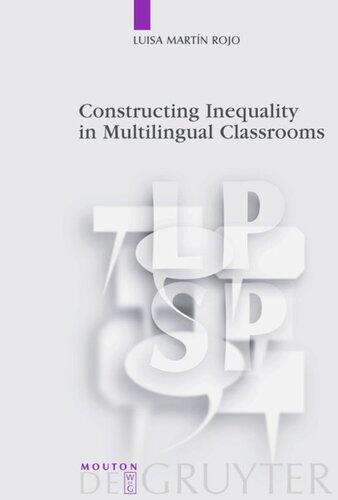

Most ebook files are in PDF format, so you can easily read them using various software such as Foxit Reader or directly on the Google Chrome browser.
Some ebook files are released by publishers in other formats such as .awz, .mobi, .epub, .fb2, etc. You may need to install specific software to read these formats on mobile/PC, such as Calibre.
Please read the tutorial at this link: https://ebookbell.com/faq
We offer FREE conversion to the popular formats you request; however, this may take some time. Therefore, right after payment, please email us, and we will try to provide the service as quickly as possible.
For some exceptional file formats or broken links (if any), please refrain from opening any disputes. Instead, email us first, and we will try to assist within a maximum of 6 hours.
EbookBell Team

5.0
40 reviewsIn her groundbreaking and innovative study, the author takes us on a fascinating journey through some of Madrid's multilingual and multicultural schools and reveals the role played by linguistic practices in the construction of inequality through such processes as what she calls "de-capitalization" and "ethnicization". Through a critical sociolinguistic and discourse analysis of the data collected in an ethnographic study, the book shows the exclusion caused by monolingualizing tendencies and ideologies of deficit in education and society.
The book opens a timely discussion of the management of diversity in multilingual and multicultural classrooms, both for countries with a long tradition of migration flows and for those where the phenomenon is relatively new, as is the case in Spain. This study of linguistic practices in the classroom makes clear the need to rethink some key linguistic concepts, such as practice, competence, discourse, and language, and to integrate different approaches in qualitative research.
The volume is essential reading for students and researchers working in sociolinguistics, education and related areas, as well as for all teachers and social workers who deal with the increasing heterogeneity of our late modern societies in their work.
Luisa Martín Rojo is Professor of Linguistics at the Universidad Autónoma, Madrid, Spain, Member of the International Pragmatic Association Consultation Board (2006-2017), & Chair of the Iberian Association of Discourse in Society (EDISO).